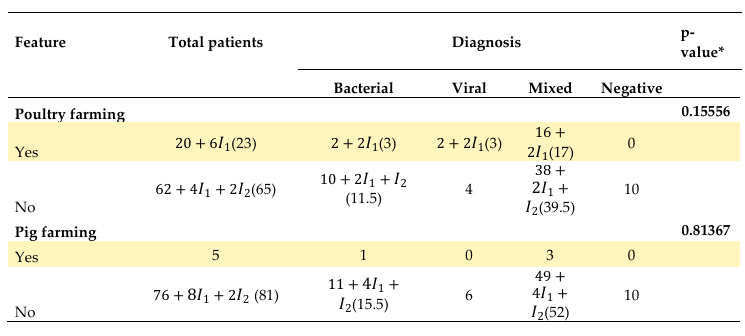Study of the immunoserological patterns of respiratory infections in children under 15 years of age in the Riobamba region based on Refined Neutrosophic Statistics
Keywords:
Acute respiratory infection (ARI), immunoserology, neutrosophy, refined neutrosophic statistics, contingency table, chi-square testAbstract
Acute respiratory infection (ARI) is an important cause of consultation in the emergency room and depending on the general condition of the person; it can become complicated and life-threatening. The general objective of this study is to identify the immunoserology of acute respiratory infections in children under 15 years of age in the city of Riobamba, Ecuador in 2023; it consists of a statistical study in 85 children and adolescents. This research made it possible to identify the presence or absence of acute respiratory infections. The infections found are provoked by viruses, atypical bacteria, or a combination of both pathogens. These diseases may have an atypical origin due to previously unknown or little-known pathogens. Another indetermination is caused by the lack of knowledge of how the individuals studied were infected. That is why we use Refined Neutrosophic Statistics to study the collected data. This theory allows us to make the study more flexible, where the indeterminacy caused by ignorance is included, either about the biological origin of the diseases or about the immunological origin in the transmission of the disease. Specifically, we use the chi-square test for Contingency Tables for data processing
Downloads

Downloads
Published
Issue
Section
License
Copyright (c) 2024 Neutrosophic Sets and Systems

This work is licensed under a Creative Commons Attribution 4.0 International License.


